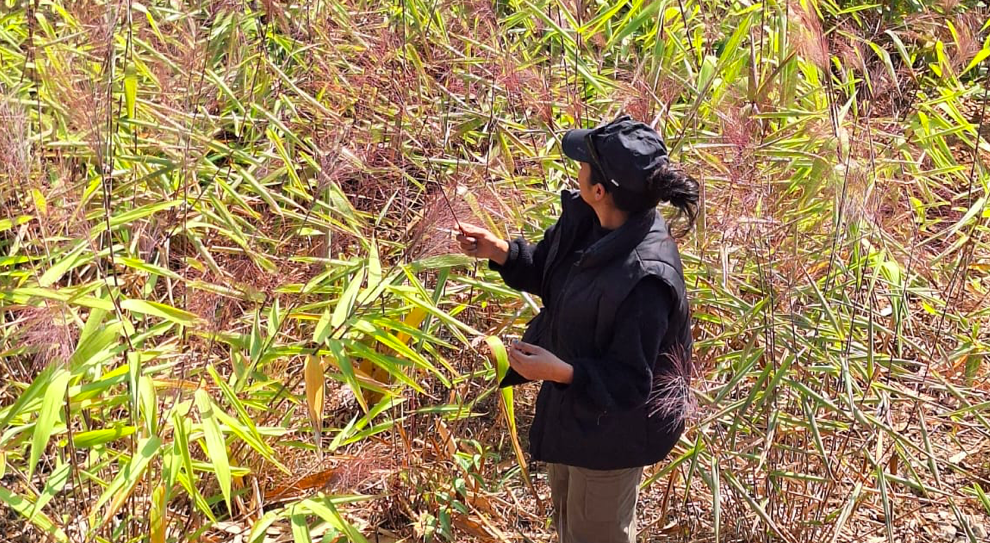Mentorship Spectrum – A Vision Rooted in Nature
Blog by Kabita Khadka
Every day, I wake up excited to work on something that not only challenges me professionally but also aligns with my passion for supporting Nepal’s entrepreneurial ecosystem. During the Nature Based Solutions (NbS) Innovation Challenge project, I’ve had the privilege of working closely with incredible women entrepreneurs who are breaking barriers, driving social change, and creating sustainable businesses. Their stories of resilience, innovation, and determination have inspired me deeply.
“When passion meets purpose, magic happens.” Rajiya’s journey is not just about business—it’s about transforming lives. From the very first day I met Rajiya, I was struck by her unwavering determination and her deep connection to the community that she works with. Her story began with a simple idea: using broom grass to stabilize landslides in rural Nepal. When Rajiya faced the issue of broom grass waste, she didn’t give up; instead, she turned it into biodegradable paper, aligning with circular economy principles. Watching her turn a challenge into an opportunity was truly inspiring. These initiatives exemplify how waste products can be turned into valuable resources, aligning with the principles of a circular economy and reducing dependence on imported raw materials.
With growing global demand for eco-friendly and biodegradable products, broom grass paper could position Nepal as a unique exporter in the green product market. The alignment of such projects with global sustainability goals (e.g., UN SDGs) could attract funding, partnerships, and technical support from international organizations. Broom grass is cultivated across approximately 43 districts in Nepal, including Taplejung, Panchthar, Ilam, Khotang, Bhojpur, Terhathum, Jhapa, Sunsari, Sankhuwasabha, Kavre, Sindhupalchok, Dolakha, Nuwakot, Dhading, Lamjung, Syangja, and Palpa. Latest reports estimate that annual production of broom grass exceeds 180,000 tons, with over 100,000 farmers engaged in its cultivation. Empowering over 1,610 marginalized Chepang people, 80% of whom were women, Agra is turning environmental challenges into economic opportunities. Her initiation wasn’t just a business move; it was a statement that showed sustainability and profitability can go hand in hand.
Working closely with Rajiya and her team during the NbS Innovation Challenge and Business Incubation Program has been an eye-opening experience. As part of the incubation program, Rajiya and her team members are in an on-going mentorship program with Mr. Ajit Bikram Shah – Director/CEO of Lotus Holdings. Watching her adapt, evolve, and solve challenges is very inspiring, specially her ability to balance her passion for social impact with the realities of running a business. Her vision of harmonizing industrial development with ecological preservation is a reminder that entrepreneurship can be a force for good. Her story resonates with me because it’s not just about business growth—it’s about community growth, and that’s a story worth telling!
About the Writer: Kabita Khadka is a Project Associate at KGS Inc. She is currently pursuing her Bachelor’s in Business Administration – Finance and Accounting from Lumbini Banijya Campus.


Comments are closed